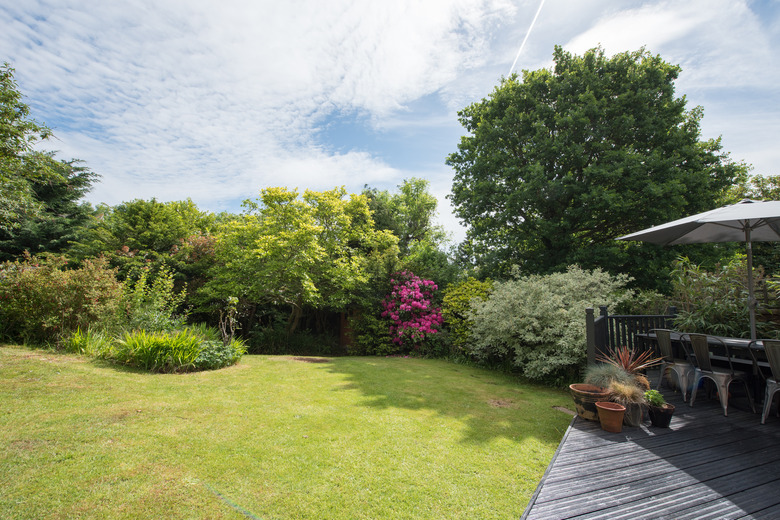Homemade Weed Killer That Does Not Kill Grass
Many commercial weed killers contain chemicals that not only kill the weeds, but the grass as well. Another problem is they can taint waterways, and are toxic to humans and animals if not stored properly. One thing to keep in mind is that there is no homemade weed killer that will also not kill the grass if sprayed or poured directly on it. Avoid this by only spraying or pouring homemade weed killers on weeds only.
Corn Gluten Meal
Remove all weeds in your lawn before using corn gluten meal as it does not affect grown weeds. Once you have done this, corn gluten meal can be applied to a lawn to suppress the development of small feeder roots, while also keeping weed seeds from germinating. For this reason, make sure you wait to apply it until your plants and grass are already germinated and established, or it will also keep grass seed from germinating. It's important to note that field trials and research on corn gluten meal show limited – if any – effectiveness on weed suppression in some turf plots.
Corn gluten meal may suppress weeds such as crabgrass, dandelions, curly dock, knotweed, lamb's quarters, pigweed, and plantain by disallowing the seeds from these plants to germinate. However, it will not affect the growth of any established plants. This includes your grass and any ornamental plants as well as established weeds.
Liquid Dish Detergent
Stir together 10 parts water and 1 part liquid dish detergent in a clean spray bottle. Soak the weeds with this mixture and it will kill them. This method works best during the hottest part of the day because the liquid dish soap gets sticky on the leaves and stems as the water evaporates, and dries them out.
Another version is to create a solution similar to insecticidal soap by mixing equal parts vinegar, salt and dish soap. This mixture will, however, kill everything you spray it on, so be sure to focus directly on your weeds and not on the blades of your grass.
White Vinegar Solution
Pour white vinegar into a clean spray bottle, and spray it directly on the leaves of weeds. This will dry out the moisture in the weed's leaves and kill it. There is some debate about whether this kills the roots and as such really kills the plants, so you will want to pull the weed out once the vinegar does its work. Since vinegar can change the pH of soil, it's not a good idea to spray it directly on the soil.
Salt and Vinegar
Mix 1 1/4 cup of salt with 1 gallon of white vinegar. Pour some of the salt-vinegar mixture into a clean spray bottle and set the spray to a stream. Spray the stream directly onto the head of the dandelions, taking care to aim it on the weed and not on the surrounding grass. This will kill the dandelions without killing the grass. Again, don't get the mixture on the grass as it will kill it as well.
This mixture can render soil sterile for up to two years, so avoid spraying it directly on the soil. Alternatively, just use salt alone, putting a pinch at the base of each offending plant, but again, be careful to apply it precisely where you need it.
